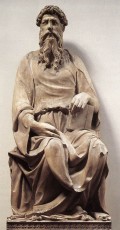Catholic Blesseds, Saints, Solemnities & Holy Days

Saint John the Evangelist
Feast Day: December 27
The Apostle John was a historical figure, one of the “Pillars” of the Jerusalem Church after Jesus death. Christian tradition says that John the Evangelist was one of Christ’s original twelve Apostles. He was the only one that lived into old age, and was not killed for his faith. He is associated with Ephesus, where he is said to have lived and been buried. He was the son of Zebedee and Salome, and the brother of James the Greater. In the Gospels the two brothers are often called after their father “the sons of Zebedee”. Originally they were fishermen and fished with their father.
John had a prominent position in the Apostolic body. Peter, James, and he were the only witnesses of the raising of Jairus’s daughter, Mark 5:37; of the Transfiguration Matthew 17:1; and of the Agony in Gethsemane, Matthew 26:37. Only he and Peter were sent into the city to make the preparation for the Last Supper, Luke 22:8. At the Last Supper his place was next to Christ on “Whose breast he leaned”, John 13:23, 25. St. John alone, remained near his beloved Master at the foot of the Cross on Calvary with the Mother of Jesus and the Pious women, and took the desolate Mother into his care at the last legacy of Christ, John 19:25, 27. After the Resurrection John with Peter, was the first of the disciples to hasten to the grave and he was the first to believe that Christ had truly risen, John 20:2-10.
After Christ’s Ascension and the Descent of the Holy Spirit, John took, together with Peter, a prominent part in the founding and guidance of the Church. We see him in the company of Peter at the healing of the lame man in the Temple, Acts 3:1. With Peter, he is also thrown into prison, Acts 4:3. Again, we find him with Peter visiting the newly converted in Samaria, Acts 8:14.





